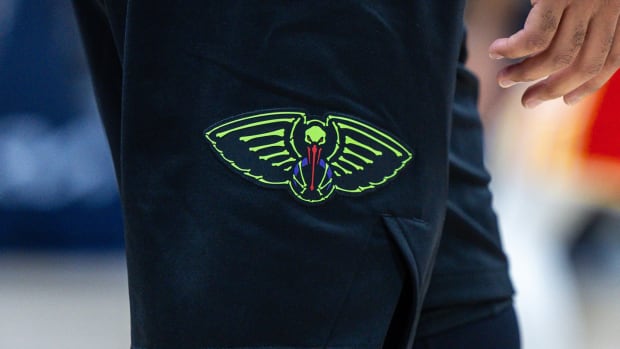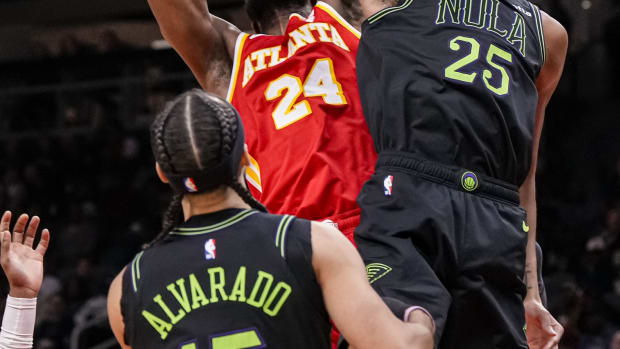The NBA Championship Formula Part III: (All) Star Power
Entering the 2022-23 NBA season, New Orleans Pelicans fans are expecting a major jump in the standings with the return of a healthy Zion Williamson and the maturation of a lineup that pushed the Phoenix Suns to six games in the opening round of the Western Conference playoffs.
How close are the Pels to being a legitimate championship contender?
To answer that, first there has to be an understanding of the components of a championship NBA team. After looking at the past decade of champions, some trends stand out.
This is part three of a five-part series identifying those keys to victory.
(All) Star Power
It shouldn’t come as a surprise to any fan of the NBA that it is truly a star-driven league. With only ten players on the court at any time, the influence of one incredibly talented athlete is larger than in any other team sport.
Plenty of teams have “stars.” It’s hard to look across the landscape of the league and not find at least one player on every roster that doesn’t stand out. The problem for most teams, however, is that while the league is as talented as it has ever been, there aren’t enough stars to go around.
One isn’t enough to make a team relevant. Two might get a franchise into the playoffs. But, if a team wants to hold up the Larry O’Brien trophy at the end of the season, they need a relative cache of premium players.
Since 2013, the roster of the average NBA champion has included 4.6 current of former All-Stars, 3.5 All-NBA team members, and 3.3 All-Defense team selections.
Only one team, the 2021 Milwaukee Bucks, was able to complete the postseason gauntlet with fewer than three All-NBA players; though the one they had was a two-time MVP and Defensive Player of the Year in the form of Giannis Antetokounmpo.
What does that mean for the New Orleans Pelicans?
It means that no one should be planning a championship parade down Canal Street quite yet.
Brandon Ingram (2020) and Zion Williamson (2021) have one All-Star Game appearance each, and either or both would have to be considered strong possibilities to be selected this season, but no one else on the roster, including CJ McCollum, has earned that honor.
https://twitter.com/NBATV/status/1280230035249672195?s=20&t=z1xdWePzQhvwxFYi6iSKFA
Making it even more difficult is that the guard and center positions in the West are stacked with talented players, and much of the Pels’ rotation is populated by players lacking either enough name recognition or history of team success.
In the history of the franchise, dating back to the 2003-04 season, only Baron Davis, Chris Paul, and Anthony Davis have earned All-NBA recognition, and the Pelicans/Hornets have had more than one All-Star in just four seasons (2003-04, 2007-08, 2008-09, 2017-18).
Again, Williamson and Ingram should challenge for All-NBA status, but does anyone else?
While Herb Jones proved to be more than deserving of an All-Defensive team nod last season, he was snubbed. Jones is by far the Pelicans best all-around defender and able to guard just about every position on the floor effectively. His name has made its way through league circles, though team success will be a major factor in whether or not he gets his due this season (see: Holiday, Jrue).
https://twitter.com/BallySportsNO/status/1519848866618789897?s=20&t=z1xdWePzQhvwxFYi6iSKFA
New Orleans’ other top defenders, Trey Murphy III and Jose Alvarado, are both reserves making their odds of being honored longer than Murphy’s considerable wingspan.
This season’s edition of the Pelicans is in all likelihood the most talented group the team has ever assembled.
Even if they play up to their full potential, it’s probably not enough to get more than a glimpse of basketball’s Promised Land.
Read More Pelicans News:
- Antonio Daniels Scratching Coaching Itch This Summer
- National Media Pushing For More Pelicans On TV
- Pelicans Almost Sold Out of Tickets for Season Opener
- Zion Williamson Draws Inspiration From This Anime
- Pelicans Need Wins on National TV To Ease Pressure
- Pelicans Ready For Brandon Ingram's Record-Breaking Season
- Draymond Claims Lakers Are Better Without Ingram
- Larry Nance Jr. Locks Out Amazon Account Helping Teachers
- Where Zion Chose to Sign His Contract Spoke Volumes
- Christian Green is MasterChef On Call For Zion Williamson
- Pelicans Give Update On E.J. Liddell's ACL Surgery
- Two New Orleans Non-Profits Get Assists From Pelicans, NBA Foundation






